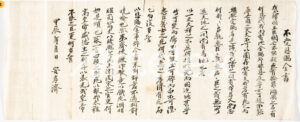Ahn Hyo-je (1901 – 1935) was born in 1901 in Yeongcheon, Gyeongsangbuk-do, Korea. From a young age, he developed a strong sense of national pride and resistance against Japanese imperial oppression. This resolve led him to actively participate in the independence movement as an adult.
In the 1920s, Ahn Hyo-je became deeply involved in the independence movement. He served as a liaison for the Provisional Government of the Republic of Korea, playing a crucial role in maintaining communication with independence activists both within and outside of Korea. He also contributed to raising funds for the independence movement by collecting and managing military funds.
In 1924, Ahn Hyo-je joined the Communist Party of Korea, where he became actively involved in labor and peasant movements. During this time, he moved to places like Shanghai, China, to continue his independence activities while evading Japanese surveillance and repression.
In 1935, Ahn Hyo-je was arrested by the Japanese police and subjected to severe torture. Despite enduring relentless torture, he remained steadfast in his commitment to Korean independence. Unfortunately, he succumbed to the injuries inflicted by the torture and passed away on November 22, 1935, at the age of 34.

